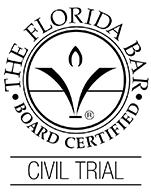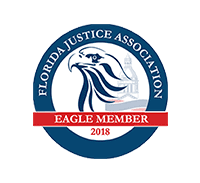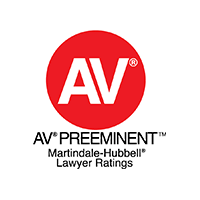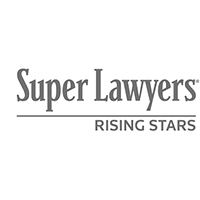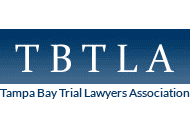Insurance arbitration involves an arbitrator—a person or organization—intervening to resolve a dispute and determine the outcome. This resolution, known as the arbitration award, usually favors one of the parties involved.
Very few car accident cases go to court. The majority are resolved outside the courtroom via a settlement. In some cases, this requires arbitration where both insurance companies submit evidence in support of their policyholder to a third-party arbitrator. Arbitration, a type of alternative dispute resolution, is a hearing where each insurer presents its case.
Arbitration between auto insurance companies could happen if fault for the accident is unclear and the evidence does not indicate negligence or is interpreted differently by each insurer. The arbitrator’s decision is typically binding and could be the final resolution of your case. If you disagree with the arbitrator’s decision, you still have the right to file a personal injury lawsuit.
Which Auto Insurance Company Can Request Arbitration?
Some states require arbitration to resolve your car accident case. Your lawyer will inform you if this is the law in your state. If it is not mandatory, either or both insurance companies can request arbitration, though, either can also decline it.
A car accident dispute has three possible resolutions:
- Both insurers agree to share liability equally (50%/50%)
- Each insurer denies liability, and the case goes to court
- Both insurers agree to settle the case via arbitration
The arbitration process is complicated and can be difficult to understand or navigate and follow on your own. A car accident lawyer can explain the process to you and how its outcome could affect the compensation you receive.
What Would Make the Insurers Choose Arbitration?
Your car accident case is far more likely to end with an out-of-court settlement than with a trial. The insurance companies might choose to let an arbitrator settle the case when negligence and liability are unclear and ardently contested. This could be the case if:
- There were no witnesses, or they can no longer be located
- The evidence is less than compelling
- Each policyholder accuses the other of causing or contributing to the accident
Sometimes, the insurance companies, despite weighing the evidence, cannot agree on how fault is apportioned. When that happens, they may choose to resolve your case via arbitration, which can provide a fair and equitable solution for both parties.
Which Insurance Company Chooses the Arbitrator?
Either insurance company can suggest an arbitrator, but both must agree on the individual who accepts this role. This decision can be difficult, and it can take time to reach a mutually acceptable decision. The arbitrator can be:
- A retired judge
- An experienced attorney
- A professional arbitrator
The arbitrator will be an impartial individual who can review the evidence and hear both sides out objectively. Once agreed upon by both insurance companies, the arbitration process can begin.
How Does the Arbitration Process Work?
A car accident lawsuit can be long and arduous. It can also be a daunting and frustrating procedure. Arbitration is typically faster and less costly than going to court. In general, the process involves:
- Representatives for each insurance company making an opening statement
- Representatives for the insurers examining and cross-examining witnesses
- Each representative presenting evidence that supports their assertions
- Each representative making closing remarks
In most cases, all involved parties will be in the same room and hear the case from start to finish. The arbitrator may opt to hear each insurance company separately. The process can last for several hours. After hearing both sides, the arbitrator will decide which policyholder is entitled to recover damages and in what amount.
What Kind of Evidence Is Presented to the Arbitrator?
In car accident cases, both parties’ representatives rely heavily on the accumulated evidence to determine negligence. Each side will review the evidence and reach their own conclusions. The evidence your lawyer compiles will include:
- Official police report
- Accident reconstruction
- Accident scene photos
- Employment records
- Expert testimonials
- Injury photos
- Medical records and bills
- Witness statements
If your insurance company goes to arbitration, they will use the same evidence to prove the at-fault driver and their insurance company are responsible for compensating you.
What Damages Are Awarded by the Arbitrator?
If two car insurance companies enter arbitration, they will abide by the arbitrator’s decision. You, as the injured party in a car accident case, are entitled to recover the same types of damages you would otherwise have been awarded. Damages can include:
- Medical bills
- Lost wages
- Property damage
- Property loss
- Physical disability
- Disfiguring injuries
- Pain and suffering
- Mental anguish
- Emotional distress
- Wrongful death damages, where applicable
If a lawyer represents you, they will explain how this out-of-court process can result in fair and appropriate financial recovery for you.
What if I Think the Arbitrator’s Decision Is Wrong or the Compensation Is Too Low?
If you were injured or suffered property damage in the accident, you have the right to file a lawsuit against the at-fault driver if their negligence caused the collision. The arbitrator’s decision cannot prevent you from doing so. You do not have to go to court without legal guidance and direction.
When a lawyer represents you, they will do all of the following for you:
- File your lawsuit within the allotted time
- Prepare evidence and exhibits for court
- Prepare you and any witnesses to testify
- Present your case to the judge or jury
Your lawyer might still be able to negotiate a settlement after the arbitration process. If they cannot, they will fight hard in court for the financial resolution you are entitled to receive. A settlement could still be possible all the way until a judge or jury reaches a verdict if your case goes to court.
Get Help Resolving Your Car Accident Case
If you or a loved one was injured in a car accident, our personal injury law firm will help you fight for appropriate financial compensation. We can also explain the arbitration process between auto insurance companies, your role, and how the outcome affects your potential compensation.
Arbitration can be an effective way to resolve your case when the insurance companies cannot reach a mutual decision. Contact our consultation team at Dismuke Law to learn more about your compensation options today.


![cftla-member[2]](https://www.1800askdave.com/wp-content/uploads/2022/03/cftla-member2.png)
![cftla-member[3]](https://www.1800askdave.com/wp-content/uploads/2022/03/cftla-member3.png)

